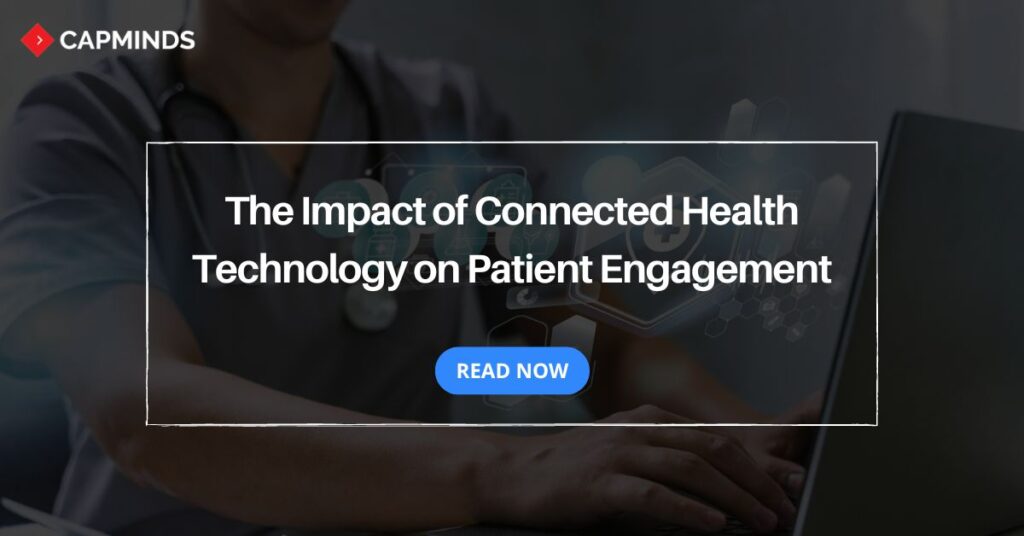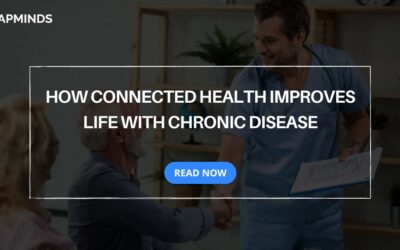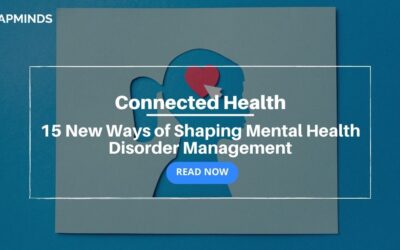The Impact of Connected Health Technology on Patient Engagement
The digitalized solution is ruling all over the world in every industry, including healthcare. One such technology that transformed healthcare and looking forward to futuristic healthcare is connected health.
Connected health technology is aiding healthcare professionals by improving access to patient health vitals accurately from home and providing convenient diagnoses.
For patients, It makes more easier for self-care management and saves money. It has become a more popular technology for treating patients, especially for chronic conditions. This blog post shares the impact of connected health on patient engagement.
What is Connected Health?
Connected health is used to deliver healthcare services to patients conveniently at home. The aim is to provide highly functioning connected tools to improve patient experience.
For instance, patients can easily schedule appointments from home instead of waiting more time in the facility. During the clinical visit, patients can engage with providers and can leave with test results instantly without waiting for weeks.
- It uses various technologies like wearables, mobile apps, remote patient monitoring devices, and telehealth platforms to provide healthcare.
- This approach helps to expand access to care, especially for patients in remote areas or patients with limited mobility.
Related: Unlocking the Power of Connected Health Data: From Insights to Actionable Strategies
Features that Modern Connected Health Technology Should Have
Modern connected health technology should have these features that benefit both patients and providers.
For Patients
- RPM allows patients to track health vitals like sugar levels in blood, blood pressure, or any other health data at home. The collected data can be securely shared with their doctors.
- Enables virtual consultation with providers, reducing travel time and increasing access to care, especially in remote areas.
- Education apps, medication reminders, and wearable devices can empower patients to take a more active role in managing their health.
For Healthcare Professionals
- Remote patient monitoring real-time data provides insights that help providers intervene if any abnormalities arise in patient health vitals.
- Secure platforms can make it easier to enhance communication between different professionals involved in patient care.
- Data analytics tools to analyze patient data for identifying trends, predict potential health issues, and personalize treatment plans.
- Connected health tech can streamline administrative tasks and free up time for providers to focus on patient care.
Related: What are the Top 10 Connected Health Telehealth Use Cases in Mental Health
Connected Health on Patient Engagement: 5 Key Beneficial Ways
1. Improved Access to Care
Connected health acts as a bridge in connecting patients and providers. This particularly benefits patients in rural areas and limited mobility. By utilizing innovative tools like:
- Video consultation
- Remote monitoring devices
- Online appointment scheduling
Patients can access quality healthcare without needing to visit healthcare facilities in person. This improves access and can lead to better adherence to treatment plans, earlier detection of health issues, and more proactive management of chronic conditions.
2. Patient-Provider Communication
Connected health technology allows more frequent and meaningful communication between provider and patient. Secure messaging platforms, mobile apps, patient portals, and online portals, enable patients to ask questions, share updates, and receive feedback from their care team in real-time.
This enhanced communication can create a strong relationship, and improve patient understanding of their conditions and treatment. Also, this technology enables patients to be actively involved in their healthcare journey.
3. Real-Time Monitoring and Feedback
Many connected health devices such as wearable sensors and home-based monitoring tools are connected with patients’ lifestyles 24/7.
These monitoring devices can gather health data in real time and transfer it securely to the provider facility. This allows healthcare practitioners to closely track:
- Patient health vitals
- Physical activity
- Medication adherence
- Other important metrics
By having real-time data access, providers can make more informed decision making. Moreover, it also enables timely intervention if any abnormalities arise in patient health to prevent conflicts.
4. Personalized Care Plans
Connected health technology also enables personalized care plans according to each patient’s health status, lifestyle, and preferences.
By utilizing collected data from connected devices, healthcare practitioners can:
- Tailor the treatment plans
- Set personalized goals
- Provide customized recommendations
This personalization can increase patient motivation, improve care plan adherence, and improve patient outcomes.
5. Increased Convenience and Accessibility
Connected Health can create a centralized database digitally to store patient data and enable easy retrieval anytime. Online appointment scheduling, virtual consultation, and remote monitoring capabilities allow patients to receive healthcare without visiting the facility.
This accessibility can benefit patients with limited mobility issues and in rural areas. Using connected health technology can enhance patients’ engagement and satisfaction with their healthcare experience.
Related: How Connected Health Improves Life with Chronic Disease
CapMinds Connected Health Solutions
Need cost-effective and reliable connected health solutions? CapMind’s Smart Connected Health Solutions make healthcare more accessible, convenient, and cost-effective.
CapMinds seamlessly integrates and implements cutting-edge connected health devices like Smart Meter, Google-Fit, Dexcom, Ambrosia, Freestyle Libre, Tidepool, etc. By leveraging CapMinds Smart Connected Health Solutions;
- Patients can effortlessly monitor their health’s vital signs.
- Stay connected with healthcare providers.
- Reduce the healthcare costs.
- Avoid healthcare practice readmissions.
- Enhance Medication Adherence.
- Prevent Complications
- Provide better care for patients conveniently
Choose CapMinds Smart Connected Health Solutions for a Smarter and Healthier Tomorrow.
Reach out to CapMinds and let us help you better connect for patient outcomes.



